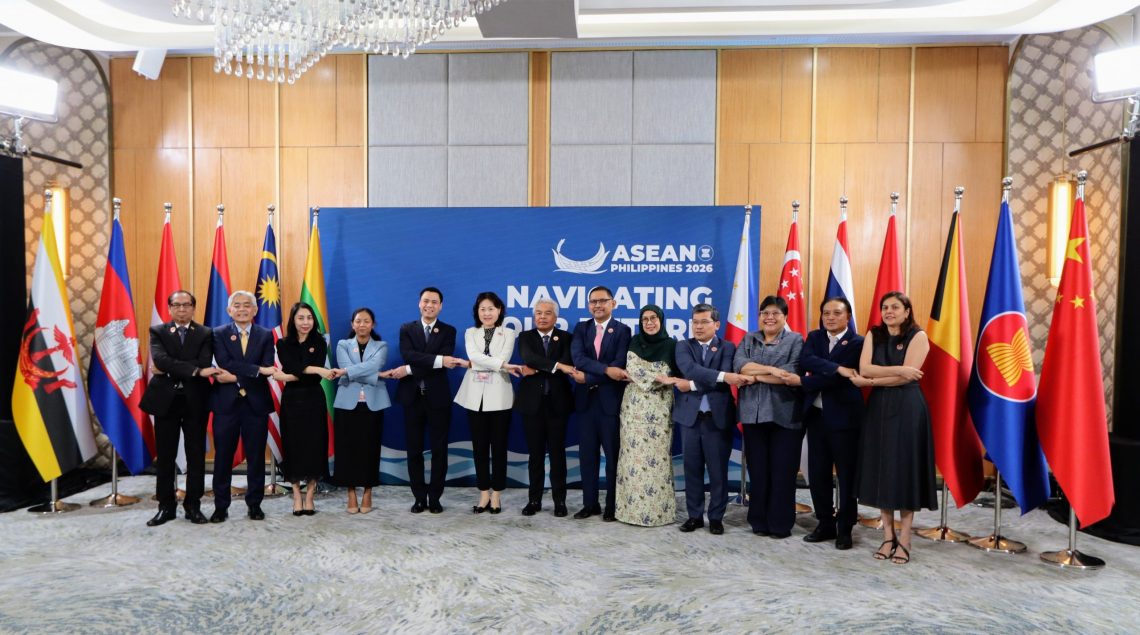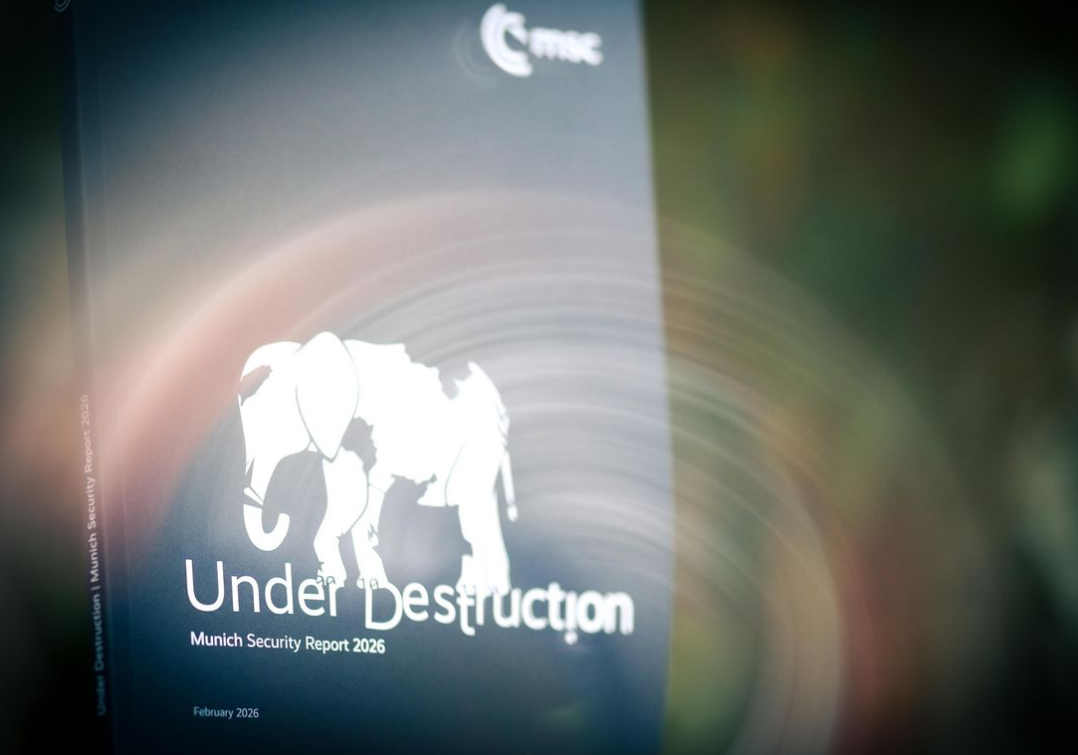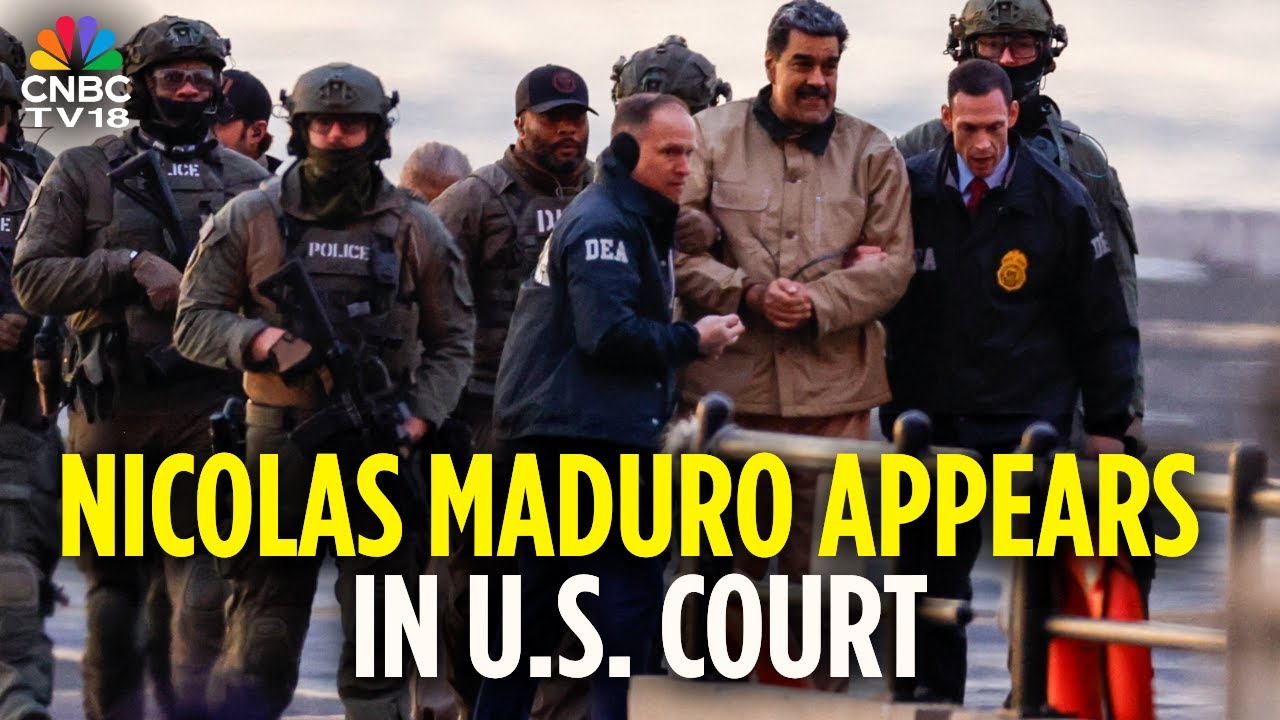
Lucio Blanco Pitlo III, President of Philippine Association for Chinese Studies, and Research Fellow at Asia-Pacific Pathways to Progress Foundation
Feb 11, 2026
The resumption of diplomatic dialogue between the Philippines and China in Cebu on January 29, ahead of the ASEAN-China Senior Officials Meeting on the Code of Conduct negotiations, is a welcome development. Avoiding conflict and preventing the deterioration of bilateral relations are imperative for the Philippines and China. Cooperation and productive ties can persist amid differences. The practice of other South China Sea coastal states is illustrative. Several points are worth considering.

Tobias Bunde, Director of Research and Policy, Munich Security Conference
Sophie Eisentraut, Head of Research and Publications, Munich Security Conference
Feb 10, 2026
The world has entered a period of wrecking-ball politics. Leaders have risen to prominence by promising sweeping demolition rather than careful reform. They seek to tear down rules and institutions at home and abroad, which they falsely claim hinder both their efforts to build stronger, more prosperous countries as well as to prevent “civilizational decline.”

Eka Khorbaladze, Research Associate, Ng Teng Fong · Sino Group Belt and Road Research Institute
Jan 23, 2026
The United States’ National Security Strategy reveals an administration grappling with the rise of China’s influence and the need to adapt to a world where America’s agenda can no longer be assumed by default in defense and trade.

Zhao Long, Deputy Director and Senior Fellow, Institute for International Strategic and Security Studies, Shanghai Institutes for International Studies (SIIS)
Jan 19, 2026
Trump cannot easily replicate his muscular intervention in South America because conditions are far different. But the methods that appeared effective in Venezuela are ill-suited to a territory that is deeply embedded in alliance politics and the international legal order.

Jayanath Colombage, Former Navy Chief and Former Foreign Secretary of Sri Lanka
Jan 19, 2026
Many countries in the North appear to be justifying the action by the U.S., while most in the South are condemning it. It is especially important now that political leaders be aware of the true aspirations and hardships of their people and address them urgently before these can escalate into dissent.

Jake Sullivan, Former U.S. National Security Adviser, Professor at Harvard Kennedy School
Jan 13, 2026
In November 2024, US President Joe Biden and Chinese President Xi Jinping made their first substantive joint statement about the national-security risks posed b

Sun Chenghao, Fellow, Center for International Security and Strategy of Tsinghua University; Munich Young Leader 2025
Jan 06, 2026
For China-U.S. relations today, the realistic question is not how to construct a G2 but how the two countries can find a workable mode of coexistence under conditions in which cooperation and competition can coexist.

Philip Cunningham, Independent Scholar
Jan 06, 2026
Chen Dong, Chen Zhongrui and Wang Jie went on a long trip far away from home. They were away for about half a year, so when it was finally time to return, they couldn’t wait. But alas, they had to wait, as they had some trouble with their vehicle. In the end, the group had to hail another ride. They phoned it in and waited nine days. They discarded their malfunctioning vehicle and got to where they needed to go in a conveyance specially dispatched to pick them up and take them home. They had to wait a while for the pick-up, but it was well worth the wait given the stakes involved, and the perils of the journey.

Wang Zhen, Professor and Deputy Director, Institute for International Relation Studies, Shanghai Academy of Social Sciences
Jan 06, 2026
Acquiring nuclear weapons would not only undermine the global nuclear non-proliferation framework but also deal a fundamental blow to the postwar international order—a prospect that must be met with deep concern and strong opposition from its allies and neighbors.

Zhao Minghao, Professor, Institute of International Studies at Fudan University, and China Forum Expert
Jan 05, 2026
On Saturday 3 January U.S. President Donald Trump announced a large-scale US strike on Venezuela and the capture of Venezuelan President Nicolás Maduro and his wife. He also plans to allow "very large United states oil companies" into Venezuela. This military operation essentially constitutes armed intervention aimed at seizing another nation’s oil resources. The Trump 2.0 administration aims to pragmatically consolidate U.S. resource hegemony across the Western Hemisphere while alleviating the burden of sustaining global order.
Back to Top

- China-US Focus builds trust and understanding between the U.S. and China through open dialogue among thought leaders.
- Our Offerings
- Topics
- Videos
- Podcasts
- Columnists
- Research Reports
- Focus Digest
- Stay Connected
-
Thanks for signing up!
- Get the latest stories from China-US Focus weekly.